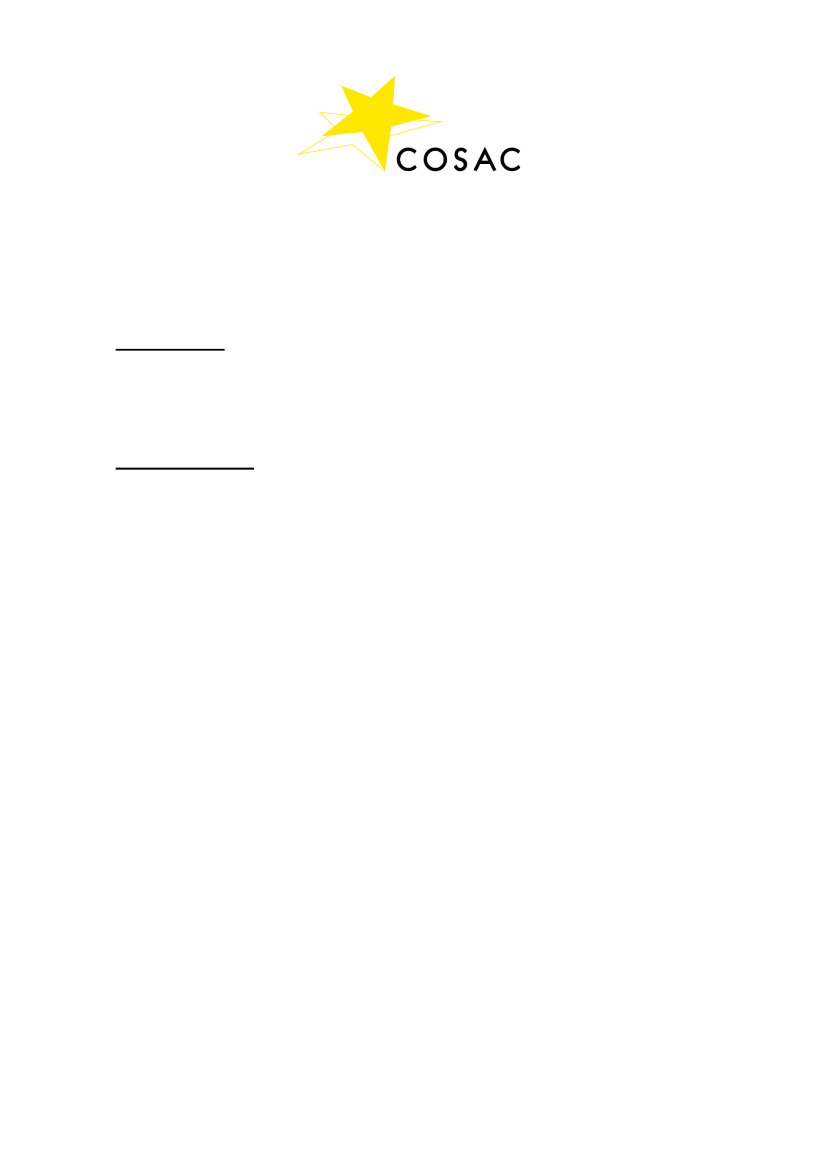
MINUTES OF THE MEETING OF THE CHAIRPERSONS OF COSAC
W
ARSAW
, P
OLAND
, 26 - 27 J
ANUARY
2025
Note:
A video recording of the full meeting is available via the webpage of the Parliamentary
Dimension of the Polish Presidency.
P
ROCEEDINGS
IN THE CHAIR: Mr Tomasz GRODZKI, Chair of the European Union Affairs Committee of
the Polish
Senat,
and Ms Agnieszka POMASKA, Chair of the Committee on EU Affairs of the
Polish
Sejm.
O
PENING
S
ESSION
Opening speech by Ms Małgorzata KIDAWA-BŁOŃSKA, Marshal of the Senate of
Poland
In her opening speech, Ms KIDAWA-BŁOŃSKA initially recalled the recent speech by the
Prime Minister of Poland, Mr Donald TUSK, in Strasbourg, in which he had stressed that
Europe is and will remain great. Europe is a good place to live in, defined by democracy and
the rule of law. She underlined that parliamentarians have a special responsibility for the future
of Europe. It is the duty of parliamentarians to listen, explain, and also to be bold about the
future of European policy. She went on to underline that Europe is only powerful when it
speaks with one voice, and only then it is capable of presenting its interests with solidarity.
Agency is the most valuable currency of policy, she added. The world today is fraught with
danger, which is why citizens expect decisive action for security, she continued. Peace is
coming to an end, and together we must be capable of making our defence industries and
militaries strong enough so that no one would even think of attacking Europe, she underlied.
She then pointed out that economic security is also particularly important at present,
emphasizing that Europe has all the tools to ensure that the 21st century is the century of a
strong Europe. She brought to attention that the Polish Presidency has security as its
overarching priority, across several sectors. She highlighted that security also involves
strengthening the Union's resilience to natural disasters, which is why the second part of the
meeting was dedicated to addressing the impact of climate change from the perspective of the
EU budget. She also reminded delegations that the Polish Presidency coincides with a new
legislative cycle and the preparations for the new Multiannual Financial Framework. Finally,
she stated that there is no time for weakness or lack of agency in the face of the dual challenge:
finding answers to global turbulence and gaining citizens' support for the bold plan to build a
secure Europe. It is a collective duty to reinforce Europe's greatness.